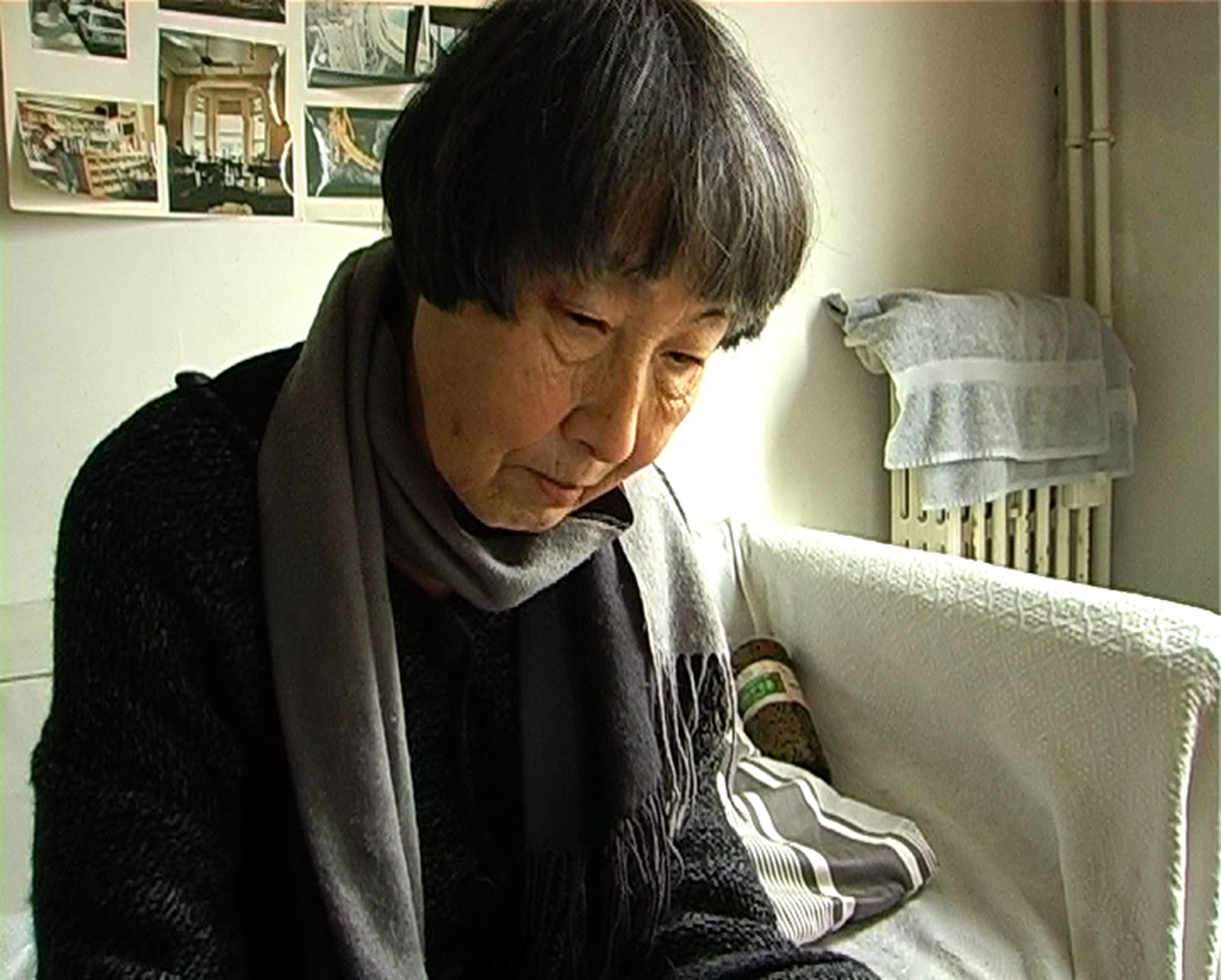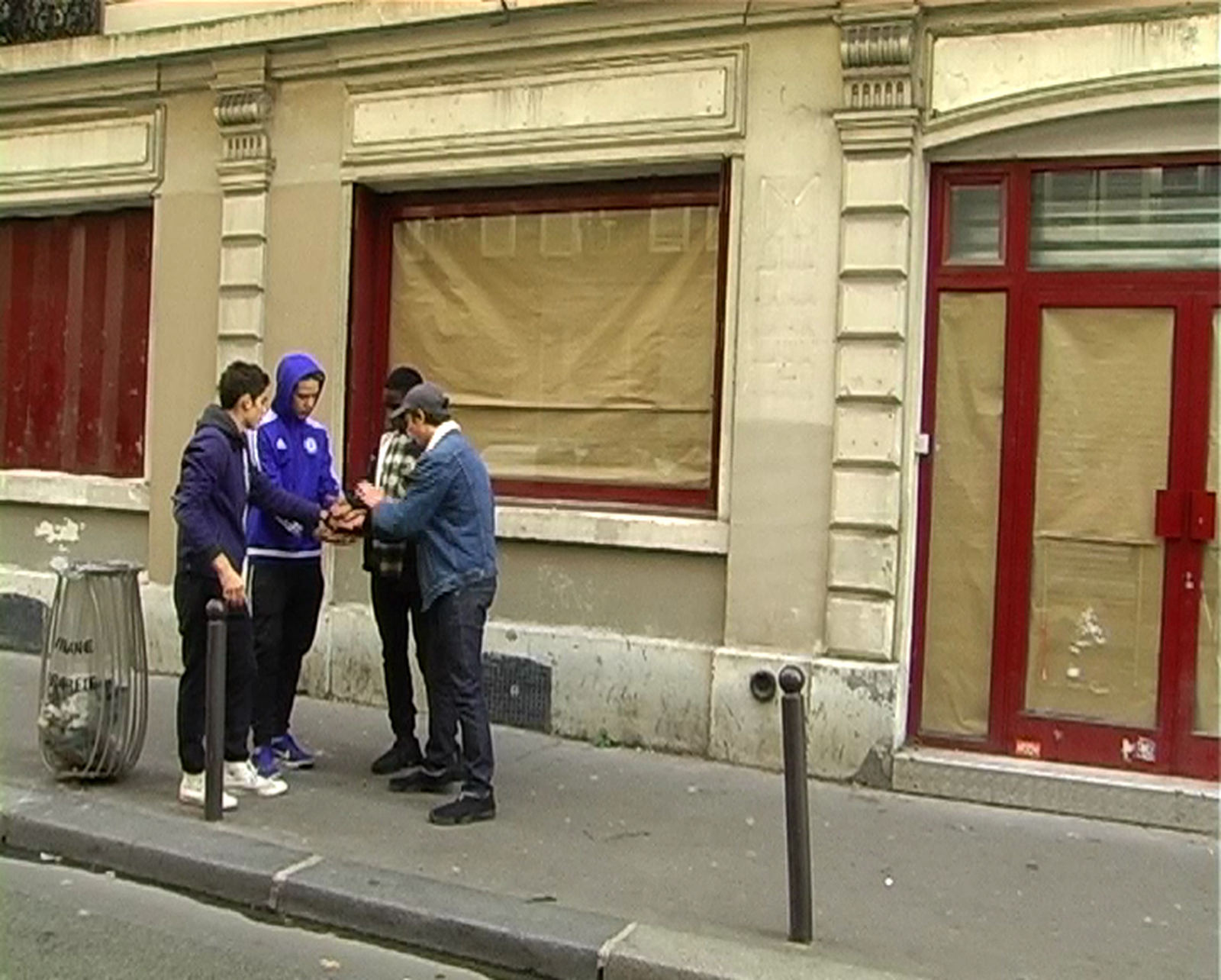Artist: Adrien Genty
Title: Théâtre blanc
Curated by: Ana Iwataki and Marion Vasseur Raluy
Screening: May 19 – June 8, 2017
Year: 2017
Duration: 7’35”
C.E.: Let’s begin with the title: “White Theatre.”
A.G.: We can read it very simply, as the inverse of black theatre. A technique that was used by my grandfather, a puppeteer, to give the illusion that the objects were moving alone. The manipulators animate the objects in a narrow corridor of light, and because they are dressed in black and not at all lit, are perfectly invisible.
C.E.: We could mention Artaud as well. What he said about the “white disease” in The Theatre and its Double.
A.G.: I never thought about that passage. But it’s true that we could make this connection, and actually there is an ethnographic dimension in the film that resonates with Artaud’s interests.
C.E.: Black theatre is a process that depends on the production of magical effects or images that themselves depend on the concealment of the techniques and mechanisms that enable them.
Your white theatre, on the other hand, is theatre in broad daylight, naked reality, it’s theatre that takes place where spectacle doesn’t.
A.G.: Yes, but I need to specify that my intention isn’t at all to critique the art of puppetry or the magic produced by the techniques you describe. There is perhaps even a survival of marionette techniques and of illusion in what you call “naked reality” through the mischievousness of these young kids, which the logobi music emphasizes.
C.E.: Where does this music come from?
A.G.: It comes from an ephemeral dance movement that originated in the Parisian suburbs in 2009. It gave rise to a dance, recorded by amateur videos, that was practiced until 2011 in quasi-ritual fashion on the streets and in building entryways.
C.E.: For me, it’s not the same magic. The magic that it produces is not the same illusion as black theatre. It comes from the attention given to gestures, to movements, postures, situations, which come from existing reality, and the theatricality that these gestures and movements contain. What interests me in your film is this kind of choreography and involuntary scenography that comes from a particular way of occupying a space.
All that hinges on very simple but determining strategies: the steadiness of the frames, the presence of the ground, the costuming elements that certain of the boys wear. There is a theatralization of space that comes from that, as well as the places. We are in the street as we know it, but the choice of facades, vitrines, the red frames, the green door, LULU H that is reminiscent of signage of the 70s and 80s become a decorative element. There is something fascinating and exhilarating in experiencing this theatricality, that essentially always exists without necessarily being noticed.
Let’s go back to logobi music. This music is somewhere between childhood and DIY, two motifs very present in your work.
A.G.: Yes, one of the motivations of this film was in a way to recreate the conditions that gave rise to logobi, all while avoiding a literal reproduction of the danced form in order to re-discover, through other channels, the grace of this surprising form, which no longer exists.
C.E.: Yes, we’re far from reconstitution. We also find here your taste for play via the dialogue at the beginning.
A.G. It’s an interview between Jim Henson and my grandfather, Philippe Genty, available to view on YouTube. Koumiko, a Japanese poetess, plays the role of Jim Henson and I play Philippe.
(Excerpt of an interview realized in Paris with Catherine Ermakoff on May 2, 2017).
Adrien Genty (b. 1987 in Charenton le Pont, France, lives and works in Paris)
He has exhibited at the Fondation Ricard, Pauline Perplexe, France Fiction, Un regard Moderne and with Shanaynay at Paramount Ranch. He participated in the 58th Salon de Montrouge in 2013. He received his MFA from Beaux-Arts de Paris in 2012.
Catherine Ermakoff is head of the Ateliers Cinema at the University Denis Diderot (Paris VII) in Paris, France and was the Editor-in-Chief of Vertigo, a cinema journal (2010-2016).
Adrien Genty, Théâtre blanc, 2017 (video still)
Adrien Genty, Théâtre blanc, 2017 (video still)
Adrien Genty, Théâtre blanc, 2017 (video still)
Adrien Genty, Théâtre blanc, 2017 (video still)





